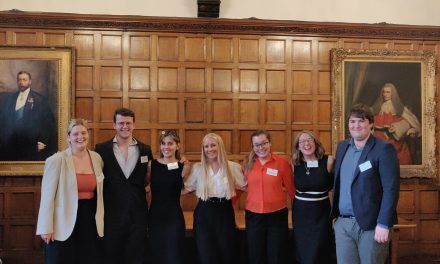We’re trying. Goodness knows we’re trying.
We blind applications. We run mini-pupil sessions for candidates from ‘non-traditional’ (and there’s a telling phrase) backgrounds (and, incidentally, the term ‘mini-pupil’ needs extermination, ASAP). We ignore which university people came from. We take the broadest possible view when seeking out examples in forms and interviews. We try to open the doors to those whose sex, gender, orientation, disability, class, and education has disadvantaged them in the past.
But is it working? I don’t think so. Not yet.
One reason, I think, is we’re leaving our efforts too late. I’m experimenting with something very bottom-up, which I hope is both repeatable (there’s no individual genius here) and could make an appreciable difference. I’m doing it for school-age kids, not college. And I’m looking for some help to make it work.
Stubborn statistics
Maybe I had it easy.
I’m middle-class. From a professional background. Mostly privately educated. Oxbridge (although not a law degree). Oh, and I’m a white bloke to boot.
The only unusual thing about me is my age. I came to the Bar (by some standards) ludicrously late, in my 40’s, as my fourth career – after reporting, regulation and banking.
But aside from that, I’m a stereotypical successful entrant to the Bar.
Surely that’s old news, though? Surely our profession is past that? Surely, we’re levelling the playing field?
Well, as I said, we’re trying. Even in my short time, I’ve seen my own chambers strive to identify and correct points in its process which may disfavour those without ticks in the old boxes, and I’m proud of that. I’m sure other Chambers do as much, and some will no doubt do more, and better.
But it’s not enough. The stats only tell a partial story, but they’re one which should make any barrister with discrimination as part of their practice wince.
To take just one example: if a potential claimant alleged indirect discrimination and pointed to stats showing that a prospective employer gave one in 10 white people jobs, but only one in 30 Black people, you’d rub your hands together.
Well… that’s us. As a profession, at least. Ouch.
And based on the experience of more than two decades in a variety of workplaces before starting pupillage, I have to say: the whole process of recruitment to the Bar remains a shocking, soul-destroying one. It’s no one’s fault, as such. It’s partly the result of our professional structure, with dozens of chambers independently recruiting no more than a couple of people apiece. I don’t know how to solve that.
Get ‘em young
But this isn’t a counsel (sorry) of despair. More a prompt for consideration, and experimentation.
After all, one of the benefits of being a largely self-employed profession is that if we want to try something, we can. We don’t need anyone’s permission.
Consideration first. A recent pupillage application round saw a truly ideal candidate at interview stumble because their written exercise wasn’t up to scratch. Which got me thinking about what we look for. Are some disadvantaged simply because of the skills and aptitudes we are seeking? When we look for motivation and a commitment to the profession, and try to seek out the ability to take large amounts of information and turn them into concise, well-chosen words in speech and writing – are we unconsciously and unfairly selecting right there?
Now, I’m not saying we’re wrong to want these things. We’re not. They’re necessary.
But let’s face it. A private education, with access to the profession, means that – all other aptitudes being equal – a kid will fetch up at university with some elements of this already embedded. Far more so than in state schools.
If we’re serious about levelling the field, we must start early. University is too late. We need to work with school-age students. And – as I said above – if we’re to do so for more than a handful of kids, we need to do it from the bottom up, in a scalable way, that goes with the grain of our profession. We need to empower any barrister who wants to do so – as their own personal pro bono project – to be able to go into their local state school and work with the students there.
So, I’m experimenting. Only one school so far, because I’m just one person. I’ll admit it – it’s my daughter’s state school (although she’s got absolutely no interest in following in my footsteps so I can say, honestly, that this isn’t self-serving). With huge help from an old and true friend from the solicitor side of the law (Robert Dedman, from King & Spalding – bless you, Rob), I’m working on a three-pronged programme. Strand one: sessions on how to become a barrister (or a solicitor – let’s remember there’s 10 times as many of them as there are us). Strand two: how to think like a lawyer. Strand three: what oral – and, critically, written(!) – advocacy is all about.
Small steps thus far. I’ve done maybe half a dozen sessions this year for years 10 and 12, including an assembly for 350 kids aged between 14 and 16 (compared with that, the Chancery Division is a breeze). I’ve prepared several briefs for the sessions – not only PowerPoint decks for the career sessions, but problem questions in both law and advocacy which, I hope, are accessible and stimulating for smart teenagers who haven’t really been exposed, yet, to how the law or the courts work. The feedback from students and school has been stellar. It’s hugely rewarding, too.
The aims? Firstly, to give state school kids a taste of what the Bar, and the law, is all about; to help them understand whether this is something they want. Secondly, to provide them with an early chance to start learning how legal thinking works, how legal problems are posed and solved, and how to persuade, both orally and in print. This, of course, also serves those who ultimately decide they don’t want to be lawyers. Critical thinking and advocacy aren’t just applicable to our trade. And their use for exams is a no-brainer, too. And thirdly – well, think about it. If you were faced with a pupillage or scholarship application which showed a state school student had given up their spare time amid exams to do this sort of thing, wouldn’t that signify motivation, commitment, suitability to our profession?
What next?
So far, then, so good. But I’ve only tried it in one school. If we can build up more materials, make a library of them, then the barrier for entry drops to almost nothing. Any barrister could pick those up, make a relationship with a local state school, and do it themselves. What could be more in keeping with how our profession works? A year, two years from now, there could be dozens of us. Even hundreds. Providing a leg up to hundreds or even thousands of students.
Tell me that’s not worth at least experimenting with.
Or, even better, tell me it is. And if so – welcome aboard. Help me write this stuff. Try it out for yourself. And let’s see how far we can take it.

Jeremy Scott-Joynt practises in commercial litigation, regulation, and business crime at Outer Temple Chambers. His background is in banking and financial regulation: his Call to the Bar in 2018 followed seven years running anti-corruption and investigation programmes for two large international banks and – before that – work in intelligence and investigations at the Financial Services Authority. He is a former investigative reporter for the BBC.



